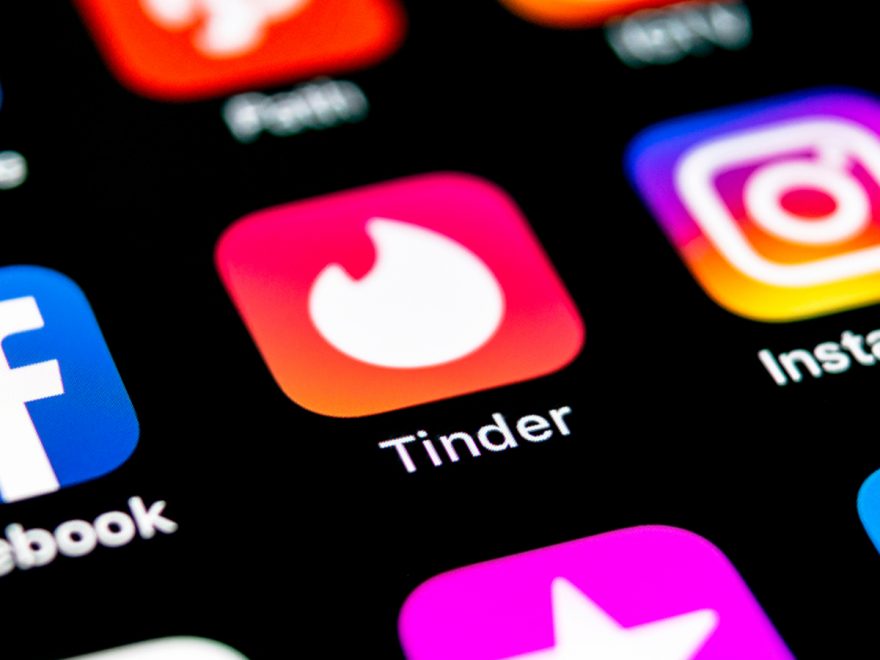Dating apps won’t help you much if your goal is to have more relationships. You would probably succeed just as well – or poorly – without it.
“For people who don’t pull off one-night stands without using Tinder, Tinder doesn’t offer much in the way of new opportunities,” says postdoctoral fellow Trond Viggo Grøntvedt in NTNU’s Department of Psychology.
He is the first author of a new article in Evolutionary Psychological Science that deals with the use of Tinder. If you’re failing outside Tinder, then you don’t have much to gain from using Tinder, either.
“For people who actually have sexual relations outside Tinder, Tinder use only provides a limited increase in the number of one-night stands,” Grøntvedt says.
Same people succeed both ways
“Most of the people who succeed on Tinder have casual sex and hook-ups otherwise, too,” says Professor Leif Edward Ottesen Kennair at the Department of Psychology at NTNU.
The researchers have previously found that Tinder use did not lead to an increase in one-night stands.
“We have found little reason to claim that dating apps lead to more short-term sexual relationships than before,” says Associate Professor Mons Bendixen, also in NTNU’s Department of Psychology.
There is thus no reason for any moral outrage from anyone.
The researchers have previously found that Tinder use does not lead to an increase in one-night stands.
Swiping
Tinder is one of several match-making apps. It uses location services to find other users nearby and then tries to match users with each other.
Selecting someone is simple and effective: candidates pop up with a picture and some information on the screen. Swiping to the left means you’re not interested in a meet-up. Swiping to the right means you would like to meet the person. If two people swipe right on each other, the app can help them meet.
But sweeping and searching on Tinder has very limited effectiveness for the vast majority of users, who will probably succeed just as well by meeting live people instead.
Lots of hits needed
A lot of hits are needed on Tinder before any lead to a meeting. And even more hits are required before any kind of relationship can happen, whether we’re talking about a one-night stand or a meeting a partner with the aim of having a long-term committed relationship.
Men and women tend to use Tinder and other dating apps differently. Most women take more time to evaluate potential matches and are more often looking for a relationship, whereas most men are quicker in their assessments and swipe to the right far more often in the hope that a high enough number will result in at least one hit.
80 per cent achieve nothing
About 20 per cent of users had one-night stands after using Tinder. The vast majority of them had only experienced this once. Thus, eight of ten users never have sex after using the app.
“Tinder may offer new sexual opportunities, but these appear to be very limited,” says Kennair.
Only a tiny group of seven people, between two and three per cent of the study participants, had one-night stands exclusively after meeting someone through Tinder. The rest achieved this by traditional dating methods as well.
Sorry, but Tinder is not a very effective way to meet a long-term partner, either.
Age and attitudes matter
Participants were asked to evaluate how physically attractive they found themselves to be. How physically attractive users are can predict the extent to which they succeed in having short-term sex when using Tinder.
“But this also applies when you’re not using dating apps. Some people get a lot, and a lot get none,” says Kennair.
“Both age and attitudes towards casual sex affect how often you actually achieve a one-night stand after using Tinder. But these are the same factors that play in elsewhere as well,” Grøntvedt says.
If you are more comfortable with casual sex, you’ll also have it more often.
“But there’s also a connection between a high interest in short-term sex encounters and less chance of meeting someone interested in a long-term relationship through the use of the dating app,” says Bendixen.
Not effective for long-term relationships either
Female Tinder users are, on average, more interested in finding long-term relationships than men are. This also applies to encounters without using dating apps.
But according to this and previous studies, Tinder is not a very effective way to meet a long-term partner, either.
Ernst Olav Botnen had the idea for this study. He is currently a clinical psychologist at Lovisenberg Diakonale Hospital in Oslo.
“It’s interesting to see how the behaviour we see in other arenas, like bars and nightclubs, is reflected in dating apps,” says Botnen.
Of the 269 study participants who were active or former Tinder users, 62 per cent were women.
“Since the participants in our selection are university students in their early 20s, it will be interesting to see if our findings apply to other groups and age ranges in future research,” Botnen says.

